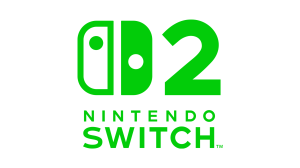Merriam-Webster, publisher of the ubiquitous dictionary, has named its word of the year for 2023: “authentic.” While Merriam-Webster says in its announcement that word of the year “authentic” is a “high-volume lookup” every year, 2023 saw a “substantial increase” driven by, in the publisher’s estimation, the discourse around “AI, celebrity culture, identity, and social media.” While “being authentic” is typically looked upon favorably, the precise meaning of “authentic” is often elusive. Some definitions from Merriam-Webster for 2023’s word of the year include “not false or imitation” and “true to one’s own personality, spirit, or character.” The former usage likely applied to this year’s contentious conversations around AI technology, which proved to be a significant sticking point in two Hollywood strikes. The latter applies more to an individual’s sense of identity and persona, both online and off, and how well celebrities like Taylor Swift can convince their fans and critics that they are privately the same person they appear to be in public.
Videos by ComicBook.com
As word of the year, “Authentic” is often used to modify words like “cuisine” and “dish” to imply that a food from a culture is prepared as members of that culture would prepare it. It is also applied to “self” and “voice” to say that someone is acting in a manner that is honest and true to their conception of themself. As Merriam-Webster points out in its post, the concept of being “authentic” has been used in discussions about how people behave on social media, with upstart social media platform BeReal basing itself entirely on capturing “authentic” experiences. Meanwhile, AI advancements and the improving technology around deepfakes make telling the difference between what is fake and what is “authentic” increasingly difficult.
What is Merriam-Webster’s Word of the Year 2023?
Merriam-Webster’s 2023 word of the year is “authentic.” However, several others were considered for word of the year as they too helped the year. Those word of the year runners-up are as follows:
- “Rizz,” internet-driven slang only added to the dictionary in September. It can mean “romantic appeal or charm” as a noun or “to charm or seduce” as a verb.
- “Deepfake,” a word that seems to go hand-in-hand with “authentic.” Merriam-Webster defines it as “an image or recording that has been convincingly altered and manipulated to misrepresent someone as doing or saying something that was not actually done or said.”
- “Coronation,” a synonym of “crowning,” likely makes it on the list thanks to the coronation of King Charles III in May.
- “Dystopian,” a term typically used to describe a theoretical future, meaning “of, relating to, or being an imagined world or society in which people lead dehumanized, fearful lives.”
- “EGOT” is the achievement of winning an Emmy, the Grammy, the Oscar, and the Tony award. The television series 30 Rock popularized the term by making it a plot point in its 2008 season, and searches for the word spiked when Viola Davis achieved EGOT status in February.
- Dictionary searches for “X” spiked after Elon Musk announced he’d rebrand social media platform Twitter as X in July. The single-letter word has many possible meanings, and Musk hasn’t bothered to explain which one he’s trying to evoke with the new branding.
- “Implode” is the less commonly used opposite of “explode.” To implode, in its most literal definition, is “to burst inward,” “collapse inward,” or “undergo violent compression.” Both “implode” and “implosion,” were searched frequently as the story Titan submersible unfolded earlier this year. The word “submersible” also saw a significant increase in searches.
- The word “doppelgänger,” used primarily to describe someone’s lookalike, spiked around multiple two crime stories this year, one in New York and the other in Germany, involving a person trying to murder someone they felt was their doppelgänger, as well as a story about two doppelgängers who both play minor league baseball but were proven unrelated and the release of the Naomi Klein book Doppelgänger: A Trip Into the Mirror World.
- “Covenant” can mean “a formal, solemn, and binding agreement” or “a written agreement or promise.” It is most commonly used in Judeo-Christian religious contexts because it frequently appears in English translations of the Bible. Searches spike this year around the shooting at the Covenant School in Nashville in March, the release of Guy Ritchie’s The Covenant in April, and Abraham Verghese’s novel The Covenant of Water being chosen for Oprah’s Book Club in May.
- “Indict” means “to charge with a crime by the finding or presentment of a jury (such as a grand jury) in due form of law.” The word saw frequent use in stories about former President Donald Trump’s ongoing legal fights. Searches for “indict” spiked 9440% on March 30th, the day a New York grand jury voted to charge Trump in a hush-money case.
- The word “elemental” can have many meanings, but the one most likely relevant to its spike this year is its oldest, which is related to the word “element,” which refers to “any of the four substances air, water, fire, and earth formerly believed to compose the physical universe.” That’s because of the release of Pixar’s latest animated feature film, Elemental, which anthropomorphizes those four classical elements.
- “Kibbutz” is a word that most people outside of Israel are unfamiliar with. It refers to a “communal farm or settlement” in the country. Searches spiked around the October 7th attacks in Israel, as Hamas targeted people living in kibbutzim.
- “Deadname” can be used as a noun or a verb. As the former, it means “the name that a transgender person was given at birth and no longer uses upon transitioning.” As a verb, it means to refer to a transgender person by their deadname. Searches for “deadname” increased in March as “Parental Rights” bills were discussed in several states. While the word does not appear in the bills themselves, the topic of deadnaming was discussed in much of the media coverage surrounding them.
What is Merriam-Webster’s Word of the Year?
Merriam-Webster’s word of the year is chosen annually as the word that best represents the year that was. The publisher uses search traffic to its dictionary’s website to help in determining what words were most relevant over the past several months.
Merriam-Webster has been choosing a “word of the year” since 2003 when it picked “democracy.” More recent picks include “gaslighting” in 2022, “vaccine” in 2021, “pandemic” in 2020, and “they” in 2019.








